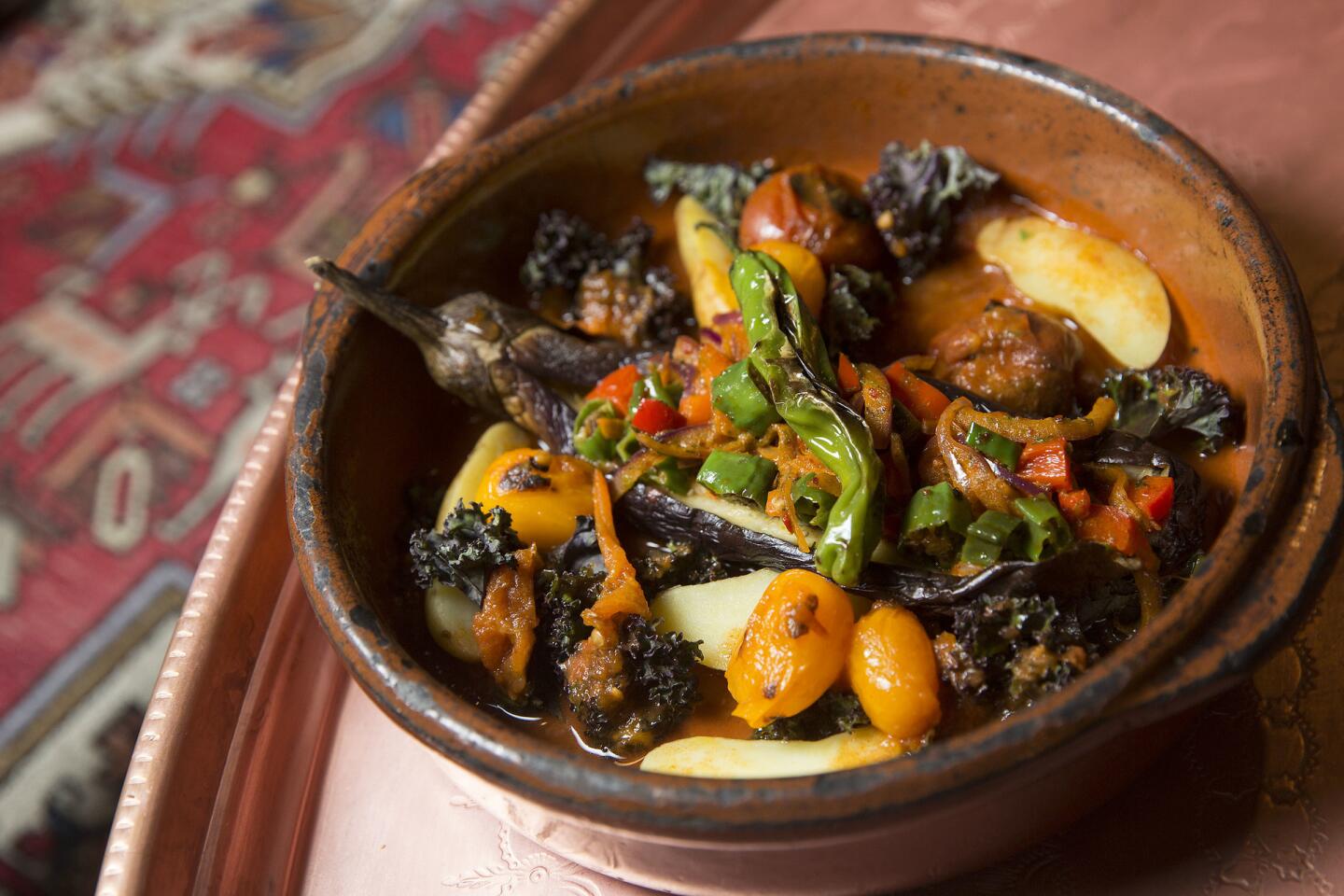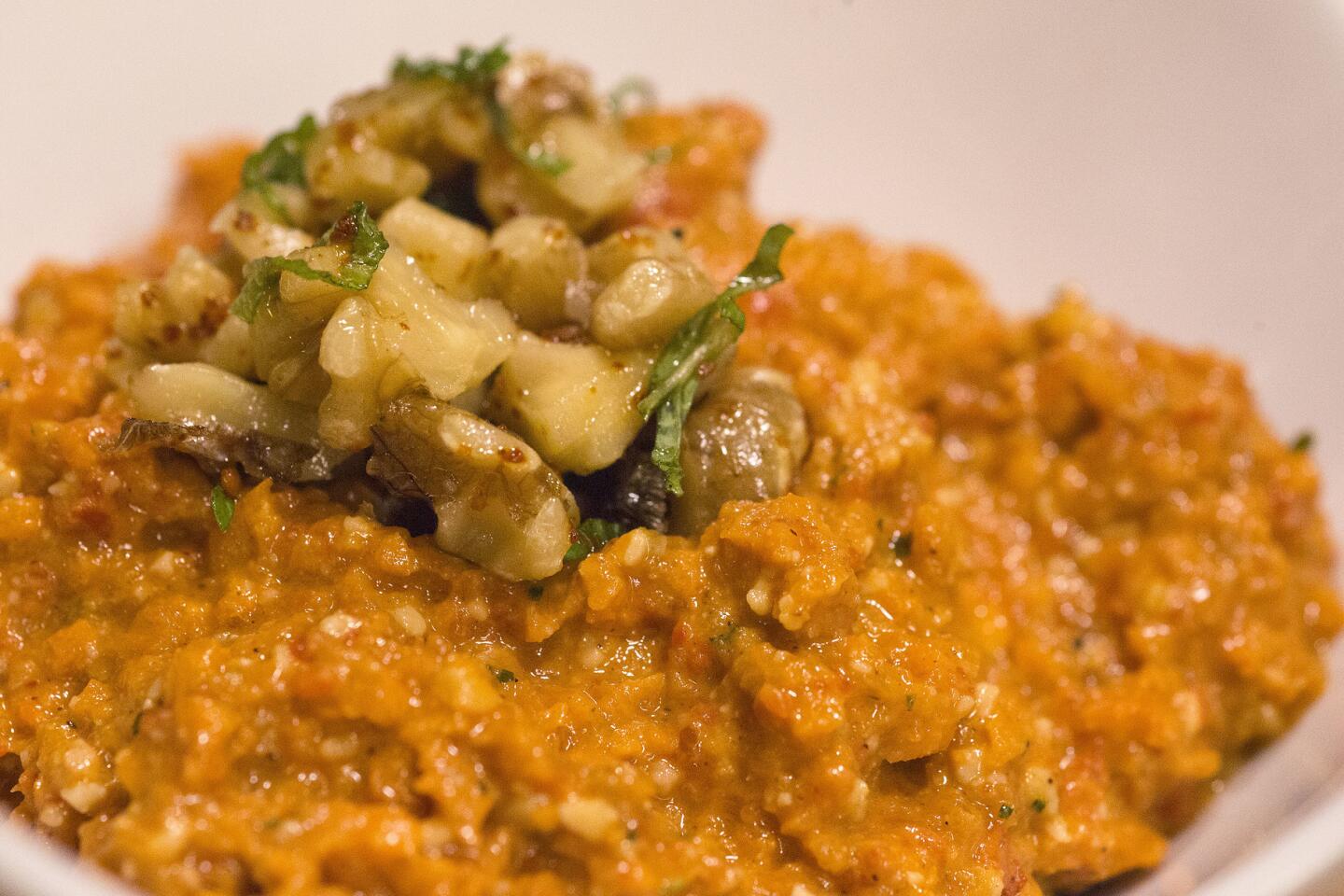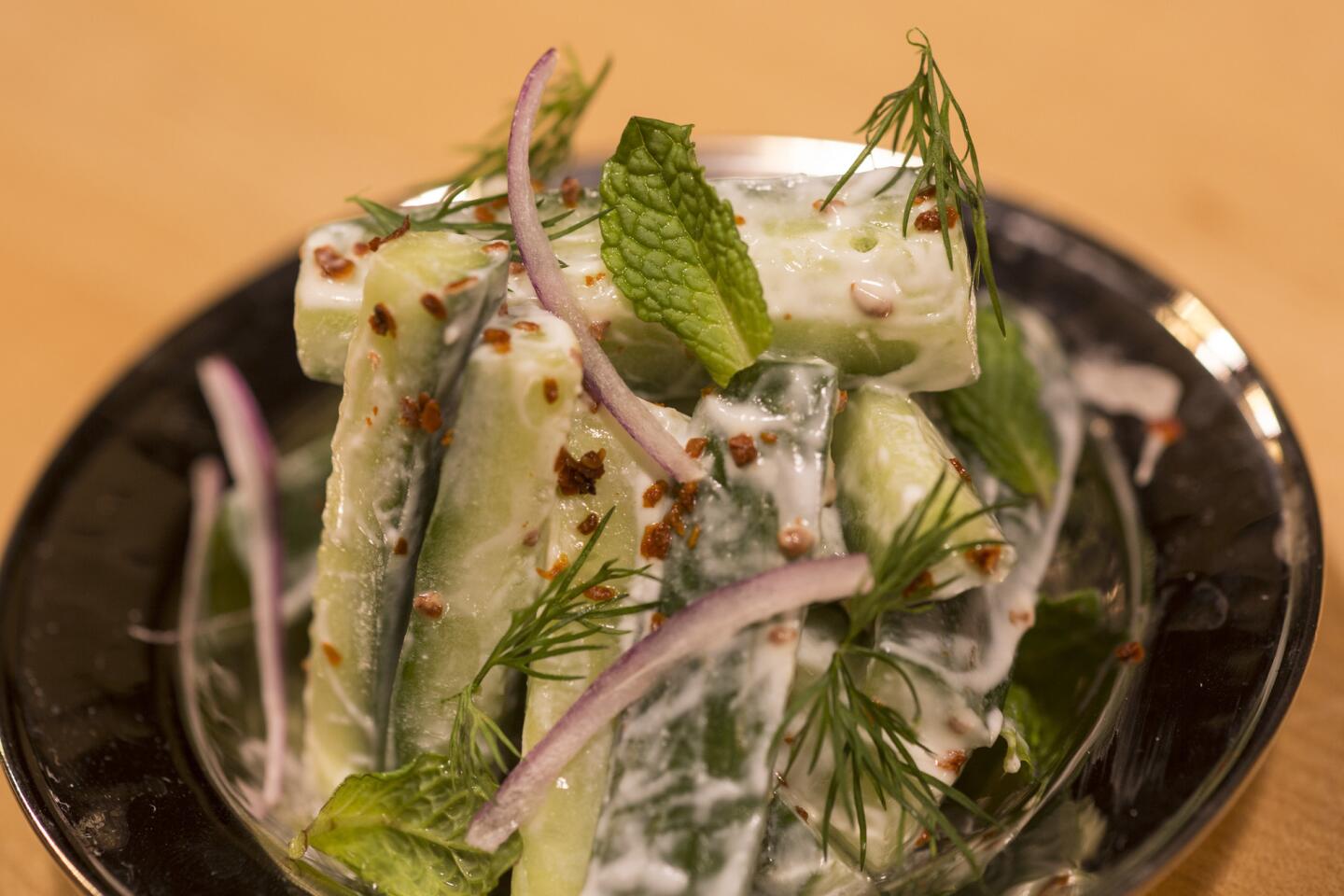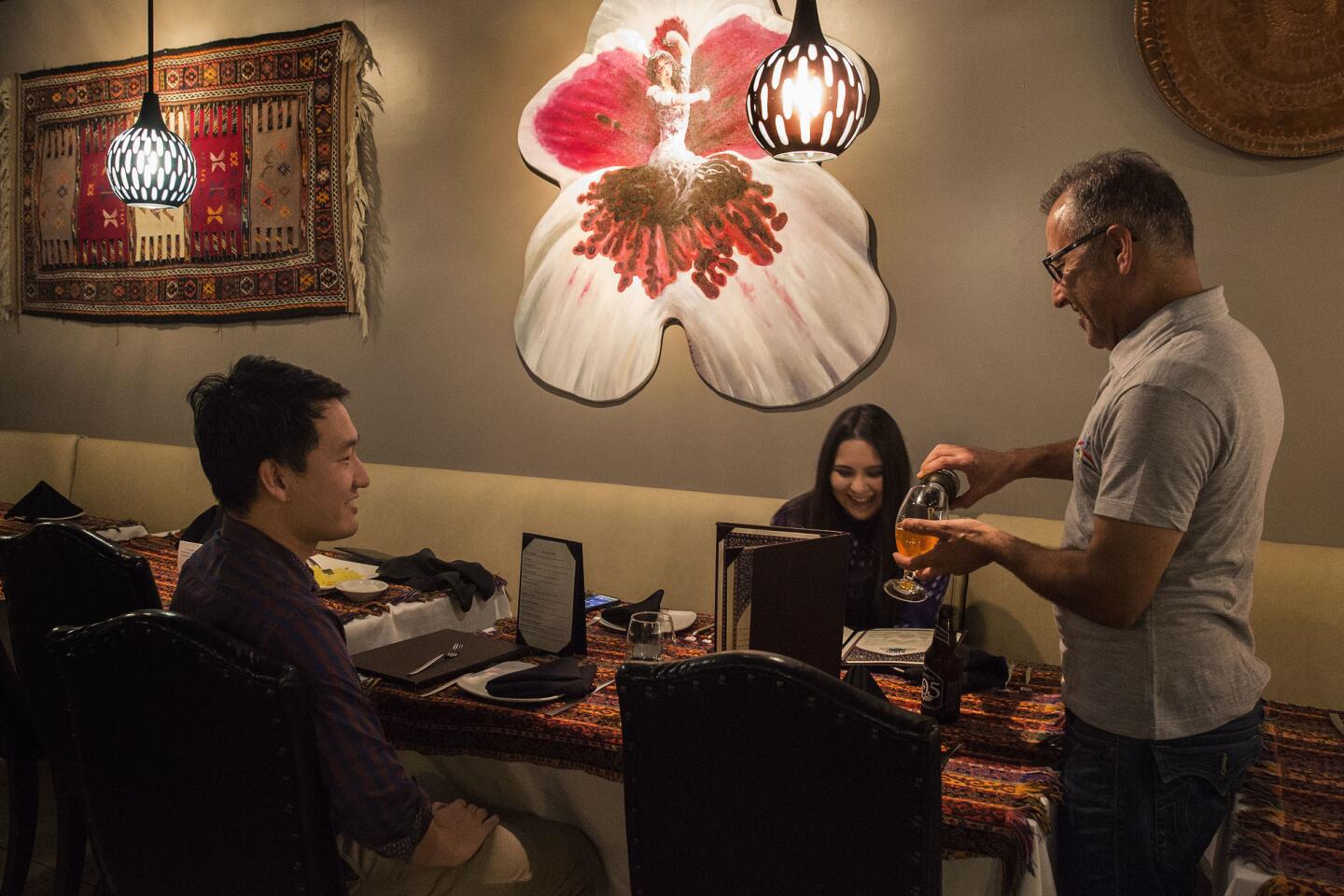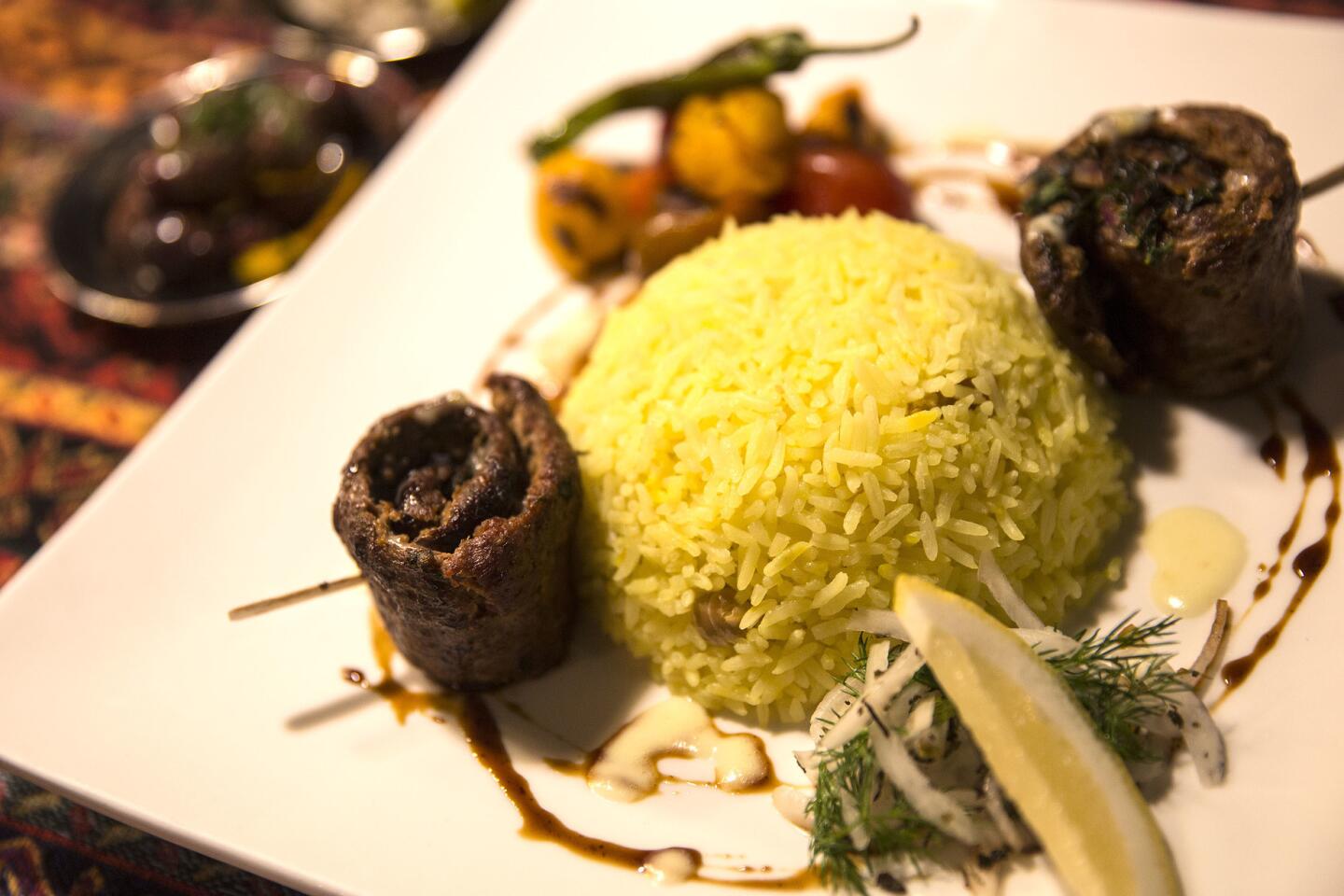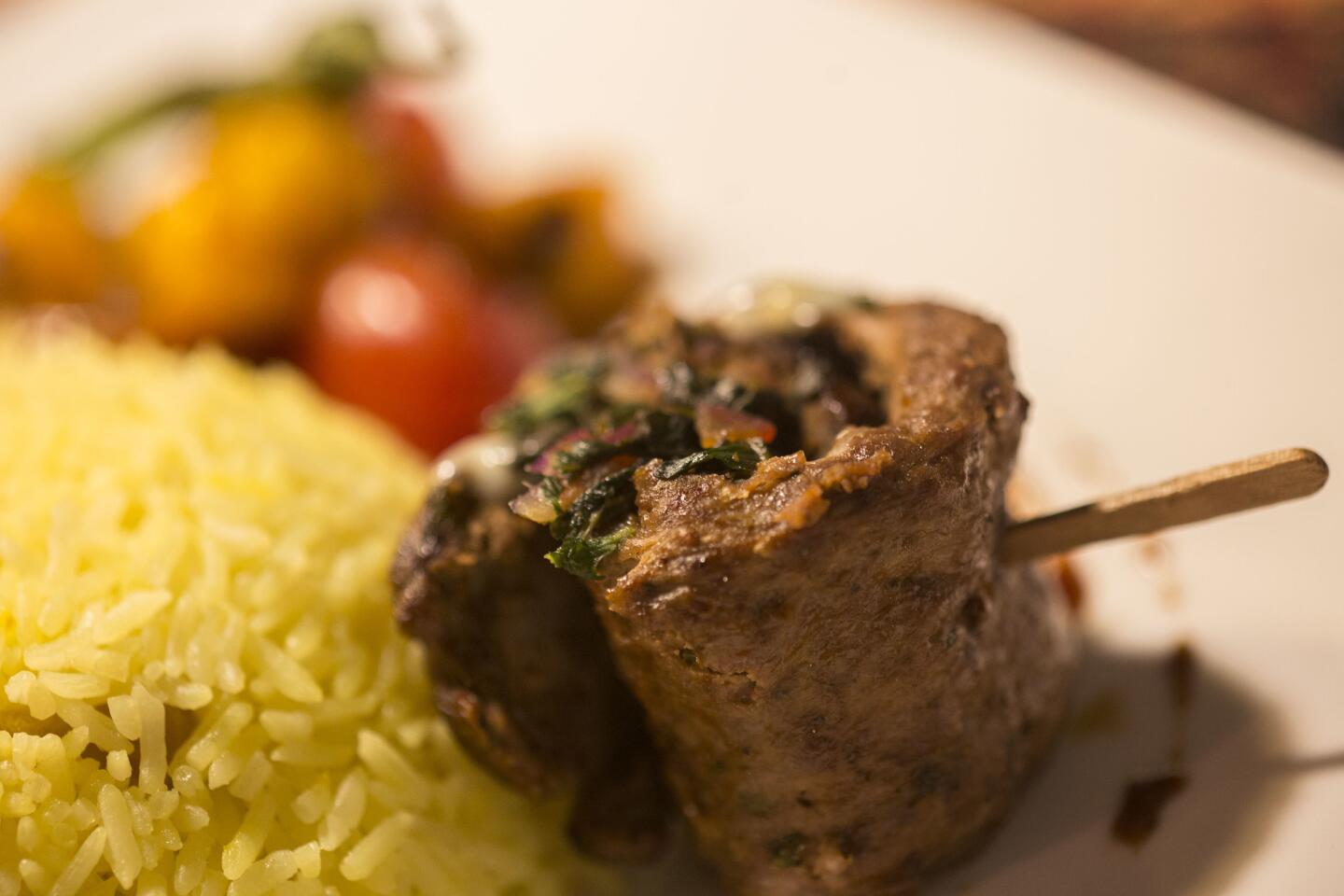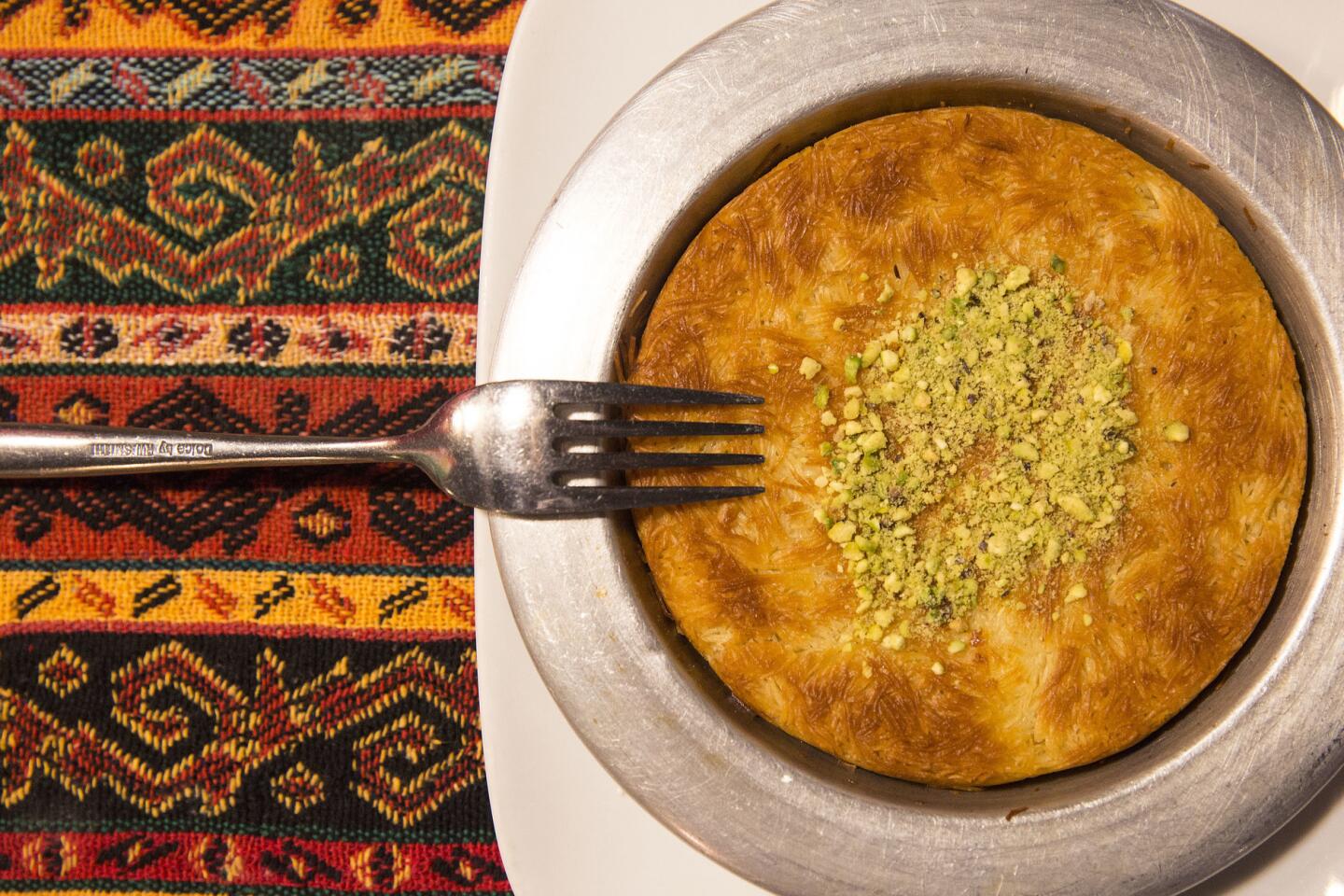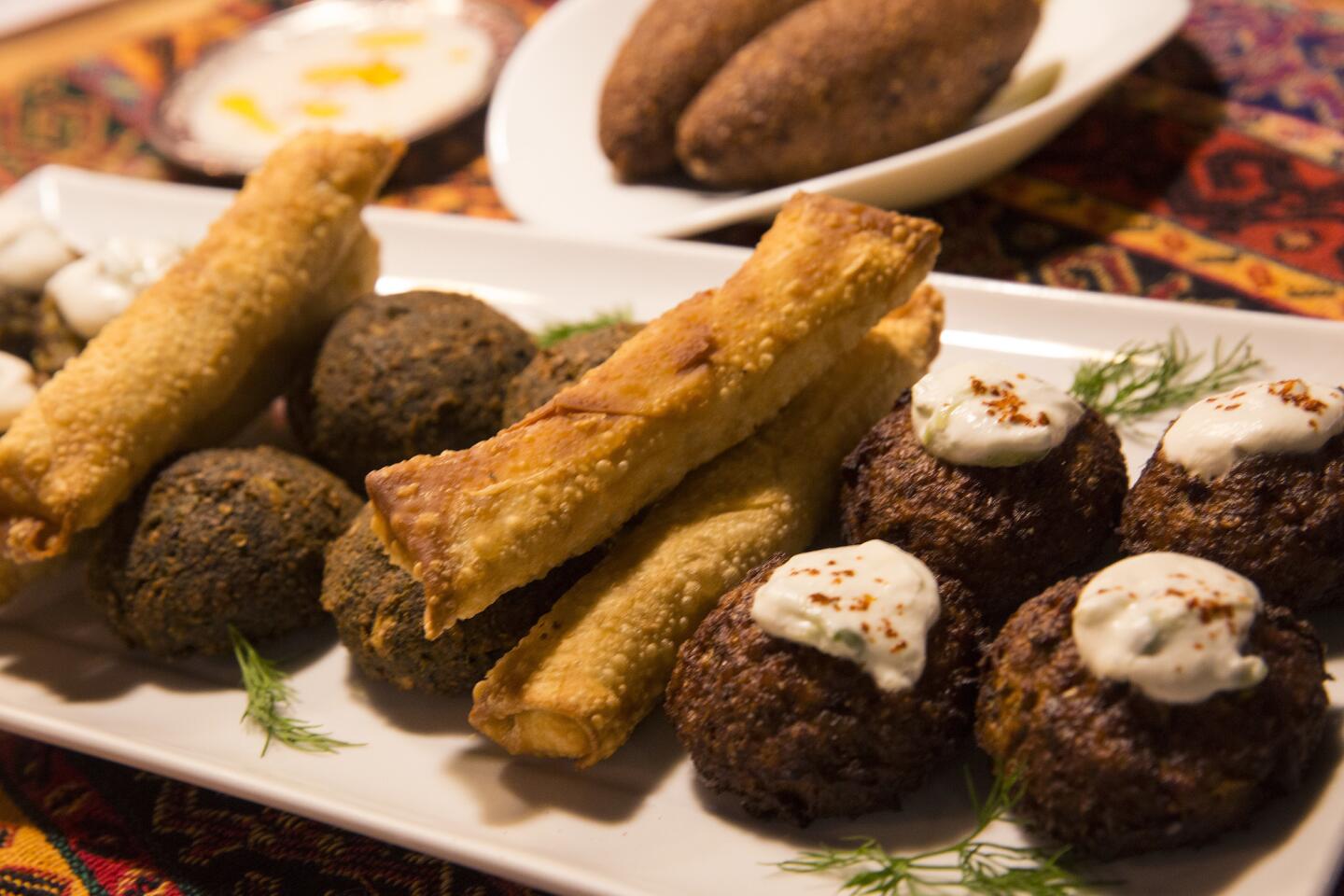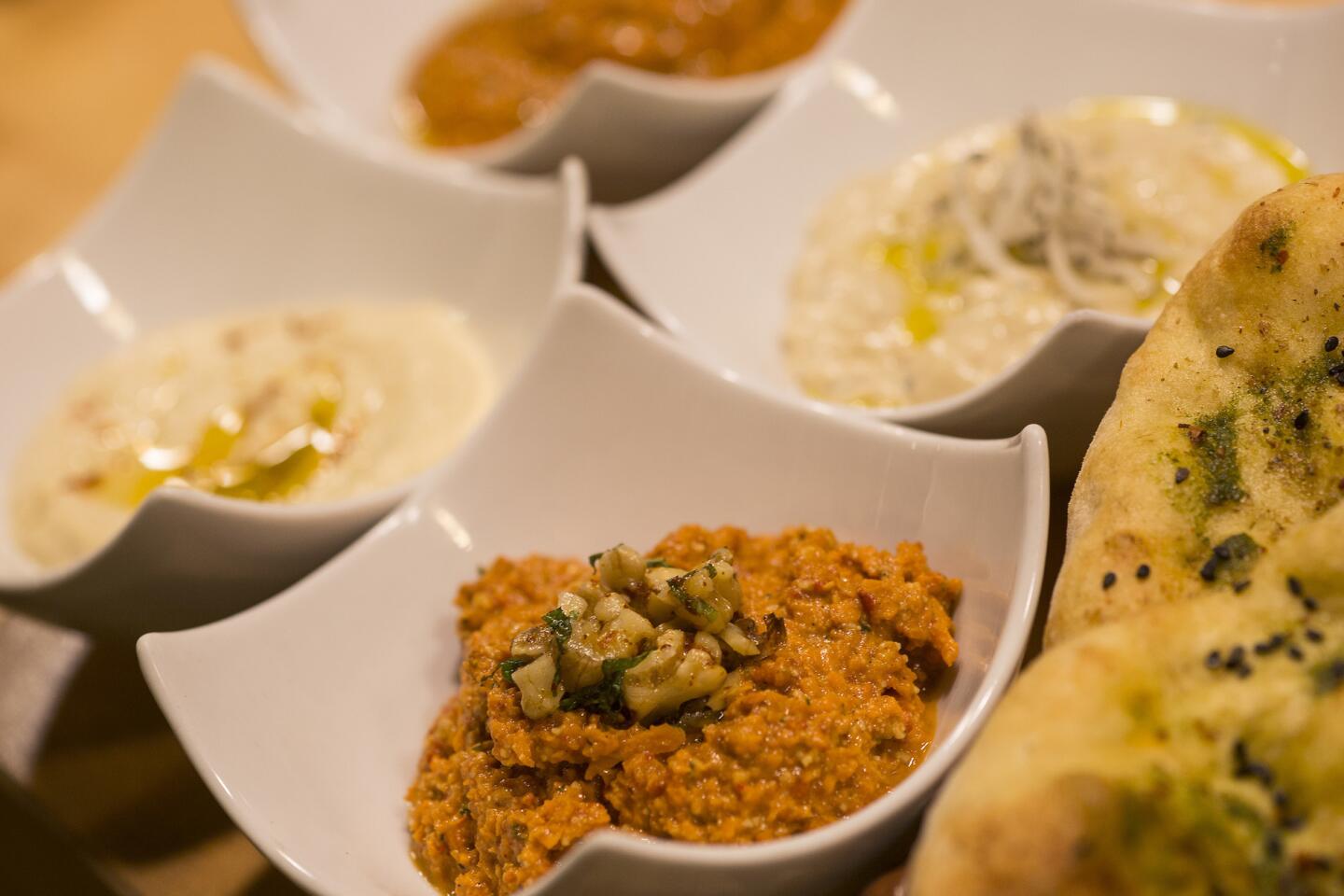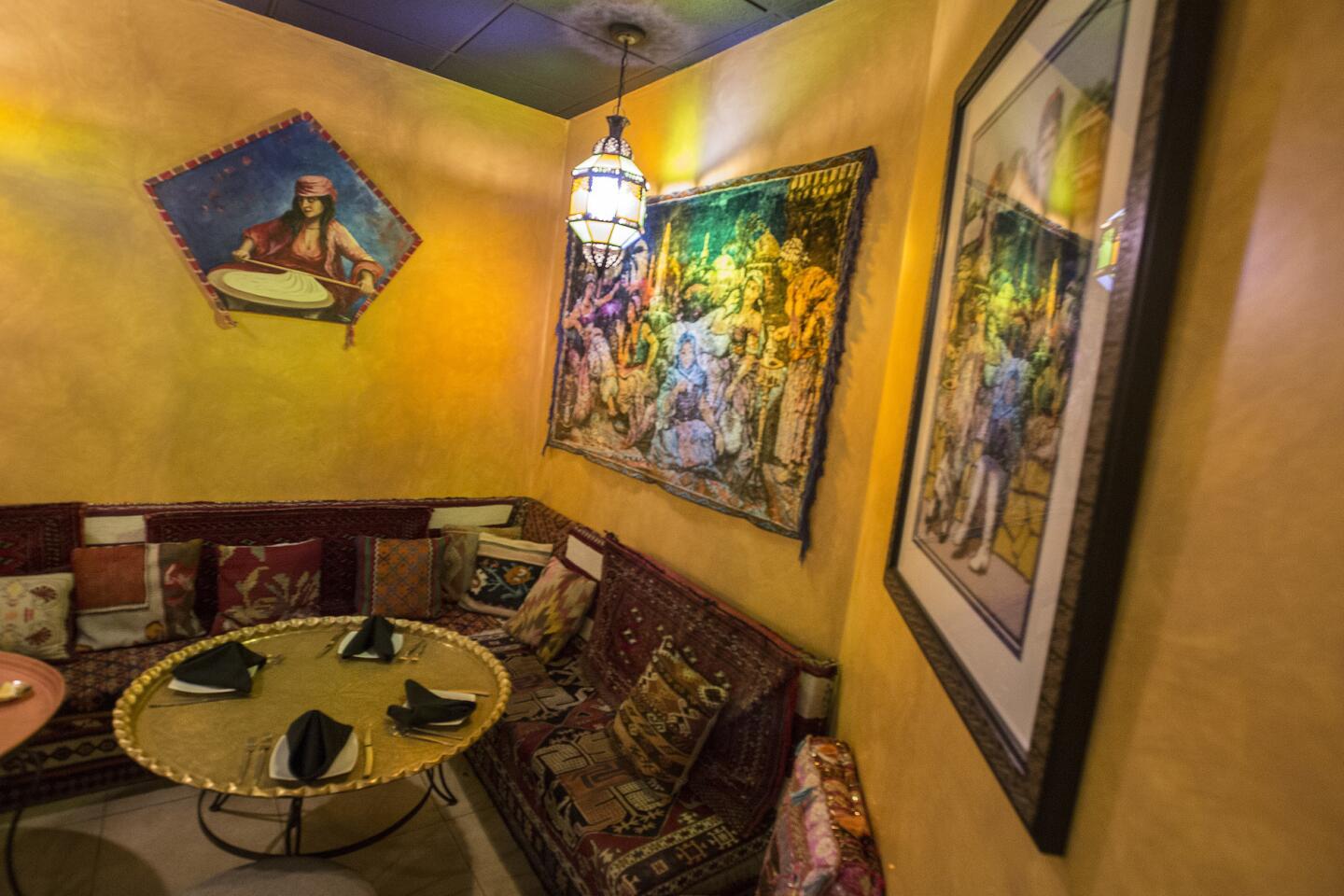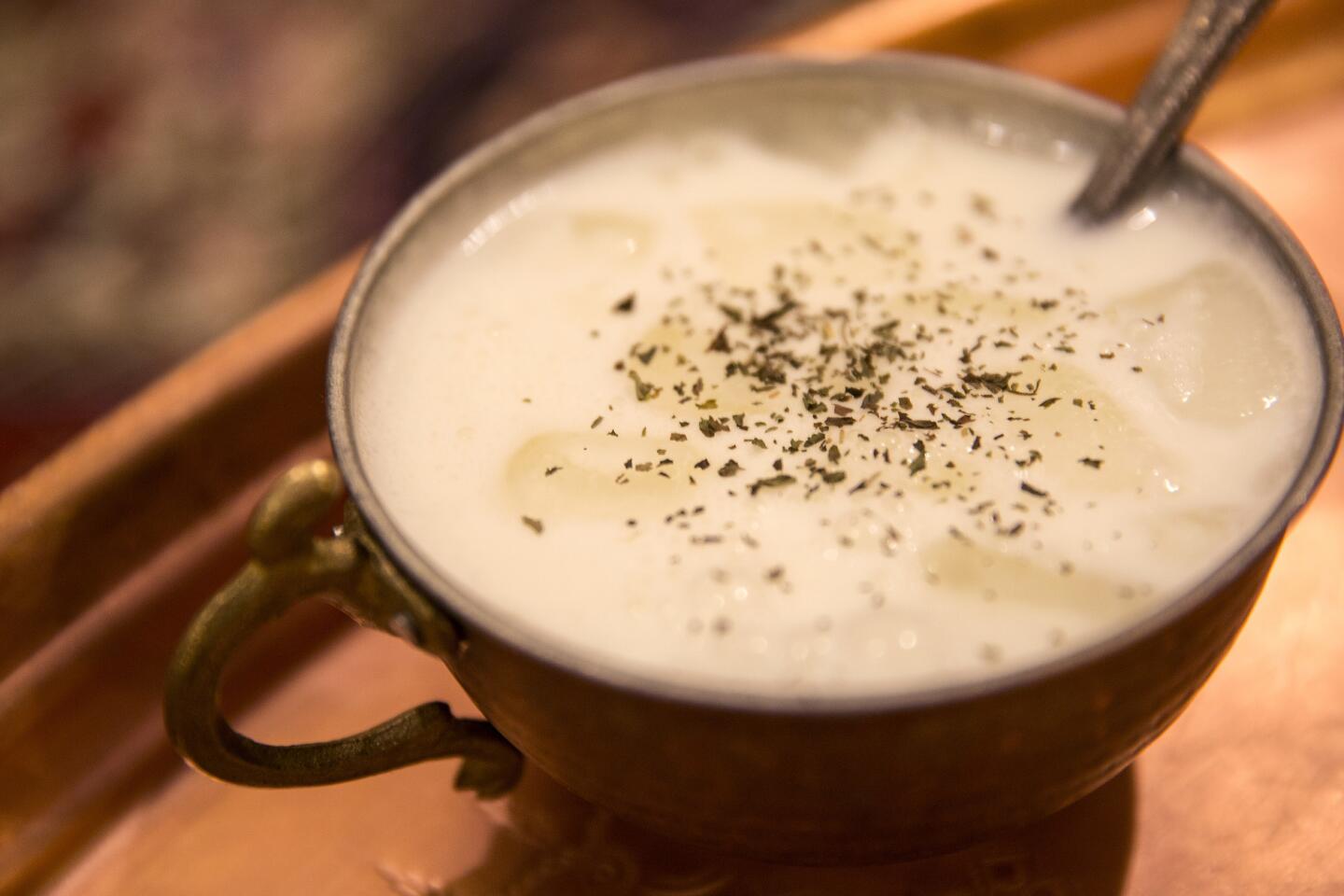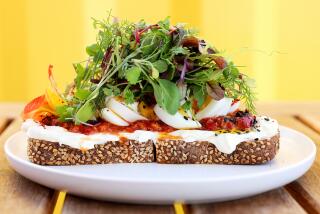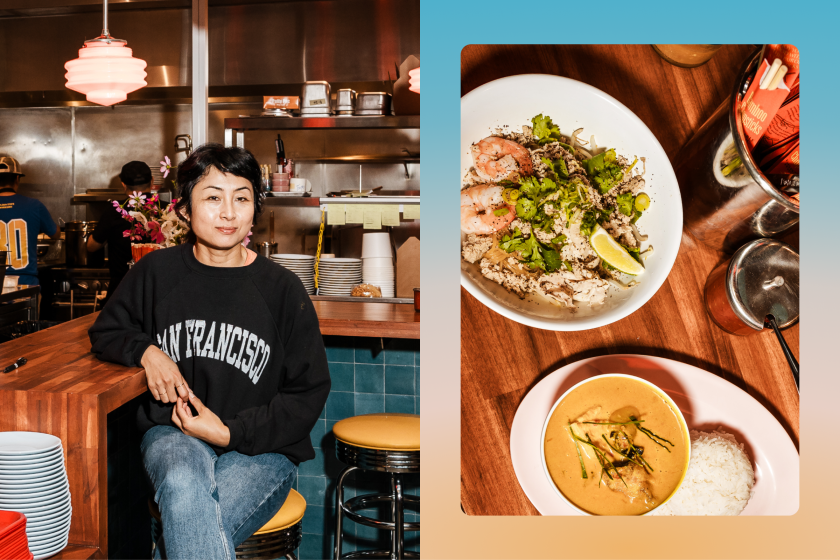Review: Jonathan Gold tells you what to order at the only Kurdish restaurant in the western United States
Imagine you are visiting a restaurant that is as comfortable and familiar as a friend’s living room, where the music is good, but where you are largely ignorant of the cuisine. Some of the dishes you recognize — hummus, falafel, chicken kebab — while others, like hesandin and mele gej, you do not. You recognize a vague Persian bent to the menu so you ask the server if the restaurant serves anything like doogh, a yogurt drink you enjoy at Iranian restaurants. She returns with a copper bowl of the Kurdish equivalent served with a ladle from which you are instructed to sip.
The drink is light but creamy, refreshingly tart, flavored with a bit of dried mint, and you soon see the bottom of the bowl. You may still not be quite sure which way a meal is headed when you come to Niroj Kurdish Cuisine in Agoura Hills, but you suspect you will be well taken care of. Sometimes that is all that counts.
My former colleague Charles Perry, an authority on Middle Eastern cuisine, used to claim that there was no such thing as Kurdish cuisine, that Kurdish cooking in Iraq was basically Iraqi, and Kurdish cooking in Turkey was more or less Turkish. The only flavor he remembered that the Kurds were known for was the piney gum from the mastic tree.
I had asked him about Kurdish cooking because I had been going to a short-lived Kurdish-Iranian restaurant in Glendale whose menu of kebabs and flatbreads was indistinguishable from that of the other Iranian restaurants in the neighborhood and whose waiters became oddly silent when I asked about Kurdish specialties. The koobideh and the pilaf with lentils had been delicious, but even given the crossover between the cuisines — Naomi Duguid recently wrote a cookbook called “Taste of Persia” that pointedly included the broad, multinational expanse of Kurdistan in the mix — it was hard to know where one style of cooking ended and the other began.
“Mastic, mastic … ,” mused Luqman Barwari, owner and chef of Niroj, when he stopped by the table on his rounds. “I do remember chewing gum from a tree when I was a child. But it’s not like we put it in everything. I think Kurdish cooking has more to do with mild spices and fresh herbs and a sense of who we are than it does with any one ingredient.’’
Niroj, named for the Kurdish new year, like the Iranian nowruz, is in a Conejo Valley mini-mall just off the 101. It shares a parking lot with real estate offices, a hair salon and what appears to be a kosher pizzeria. Its small dining room is lush and softly lighted, with tables decorated with rich fabrics, oil paintings on the walls and floor-to-ceiling racks stocked with Turkish and Lebanese wines. The vegetables come from the local farmers market. The meat is halal. On weekends, there is sometimes Kurdish music, as well as things like Barwari’s kobbe soup, made with minced meat, bulgur and three different kinds of beets. A lot of the customers seem as if they drop in once or twice a week, less for a culturally enriching experience than for a plate of lamb chops and a glass of wine.
And while Barwari, a former scientist, comes from the Iraqi city of Mosul, his cooking has influences from across the region — and from California, if you include the mesclun-based salads, the salmon with white wine and the calzone-like pide — flatbreads folded over fillings of spinach and feta, mushrooms or a pepperoni-pizza-like mix of sujuk sausage and cheese.
If you order cold mezze, you will recognize the hesandin as a close analogue to muhammara, a smooth, slightly spicy dip made with walnuts, red peppers and a touch of sweet pomegranate molasses, and the piyas as a pleasant if mild tabbouleh. The wood-baked casserole mele gej, bafflingly translated as “Dizzy Clergy’’ on the menu, turns out to be the Kurdish version of the Turkish imam bayildi — eggplant, peppers and tomatoes cooked until they nearly collapse into a juicy purée, a dish so famously delicious that it was said to make a cleric reel with pleasure. (Mele diz is pretty much the same thing with the addition of meat.)
The lehmecun, baked in a wood oven, is a thin, crisp-edged flatbread smeared with tomato and sprinkled with ground meat, like an Armenian lahmajune.
Borek resembles a slightly stodgy egg roll: thin pastry rolled around a filling of herbs and cheese. The kobane falafel, stained dark green with kale, may be perhaps too dense by half — you’re probably better off with the mujwer, a kind of fritter made with vegetables, eggs and cheese, which is springy, lighter than you might expect such a thing to be, and nice with a dab of yogurt.
Barwari’s cooking is restrained in its spicing, easy on salt, tending toward the supple rather than the crisp. Sometimes, as with the braised lamb tawe, this is a fault. Sometimes, as with the house’s namesake Niroj kebab, it is just right — a ground mixture of beef and lamb wrapped around a bit of spinach and pomegranate molasses before it is grilled, then splashed with a little yogurt. Barwari claims that no other restaurant in California offers this dish, which I don’t doubt — Niroj is the only Kurdish restaurant in the western United States. The kebab is lovely with Barwari’s chickpea-studded rice.
Even if you tend to skip desserts in Middle Eastern restaurants, you should probably snag an order of Barwari’s kunefe —– melted cheese crowned with a crisp, syrup-sweetened disk of pastry. There may be no better companion for a glass of strong Kurdish tea.
::
Niroj Kurdish Cuisine
A Kurdish restaurant in a Conejo Valley mini-mall
LOCATION
30313 Canwood St., Agoura Hills, (818) 889-7888, nirojcuisine.com.
PRICES
Mezze $6-$9; salads $10-$11; kebabs and casseroles $17-$26. Set-price dinners $31-$33 per person.
DETAILS
Open 4:30 p.m. to 9 p.m. Tues.-Thurs., 4 p.m. to 10:30 p.m. Fri.-Sat., 4 p.m. to 9 p.m. Sunday. Credit cards accepted. Beer and wine. Lot parking.
RECOMMENDED DISHES
Hesandin; mujwer; mele gej; niroj kebab; kunefe.
MORE FROM JONATHAN GOLD
The restaurant is called Legendary. But is it? Jonathan Gold sits down for showstopping Sichuan
At the Southern-style Hatchet Hall, Jonathan Gold finds good times, then takes home great leftovers
Now you can ask food critic Jonathan Gold for advice anytime
More to Read
Eat your way across L.A.
Get our weekly Tasting Notes newsletter for reviews, news and more.
You may occasionally receive promotional content from the Los Angeles Times.
